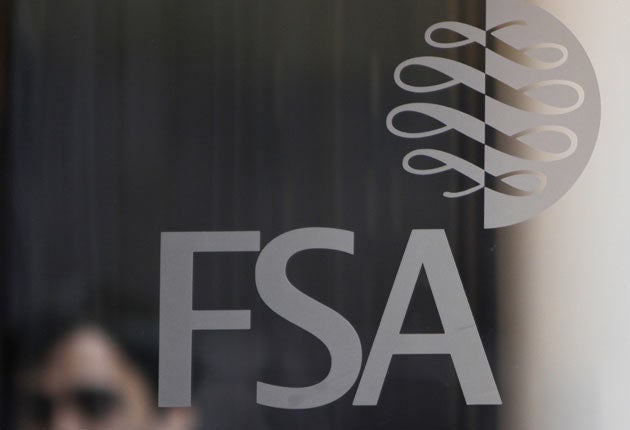UK refuses to implement European shorting ban

Your support helps us to tell the story
From reproductive rights to climate change to Big Tech, The Independent is on the ground when the story is developing. Whether it's investigating the financials of Elon Musk's pro-Trump PAC or producing our latest documentary, 'The A Word', which shines a light on the American women fighting for reproductive rights, we know how important it is to parse out the facts from the messaging.
At such a critical moment in US history, we need reporters on the ground. Your donation allows us to keep sending journalists to speak to both sides of the story.
The Independent is trusted by Americans across the entire political spectrum. And unlike many other quality news outlets, we choose not to lock Americans out of our reporting and analysis with paywalls. We believe quality journalism should be available to everyone, paid for by those who can afford it.
Your support makes all the difference.The Financial Services Authority has rejected the shock bans on short selling financial stocks imposed by France and other European countries in an effort to quell market turmoil.
The watchdog believes falls in UK bank shares last week were caused by traditional long investors selling shares and not by pressure exerted by short sellers. As a result, the FSA ruled out joining France, Italy, Spain and Belgium, which announced on Thursday night that they were outlawing shorting temporarily.
The FSA said yesterday: "We have an existing short-selling disclosure regime around financial stocks in place and we continue to monitor the activity in our markets accordingly. We have no current plans to introduce a short-selling ban in the UK." Andrew Shrimpton, the FSA's head of hedge funds until 2007, said the regulator had learnt its lesson from the ineffectiveness of a ban which it implemented during the credit crunch three years ago.
Mr Shrimpton, now a partner at the asset management consultants Kinetic, said: "We had looked at bringing in short-selling disclosures or bans before but we decided against it. In 2008 the political pressure became too great but the ban didn't work. "You take liquidity out of the market if you can't short, and an illiquid stock is more volatile than a liquid stock."
Short sellers, usually hedge funds, borrow shares they do not own and sell them expecting the price to fall so that they profit by buying them back more cheaply. Supporters of bans say that in fearful markets, short positions become self-fulfilling as traders spread scare stories to push down prices.
European bank shares rose yesterday as relief about the bans spread, after a week of wild trading. Still, market watchers said the rushed bans would achieve little and could make financial shares more volatile. Barclays Capital analysts said: "European bank stocks, while bouncing back after a knee-jerk response in September 2008 when a short-selling ban was announced, dropped sharply over the next few months as the financial and economic crisis worsened."
Shares in SocGen and Italy's Unicredit, which both suffered in Wednesday's market rout, both rose by 5.6 per cent. Barclays was the biggest UK gainer, up by 5.3 per cent, while the FTSE 100 rose by 3 per cent.
Join our commenting forum
Join thought-provoking conversations, follow other Independent readers and see their replies
Comments